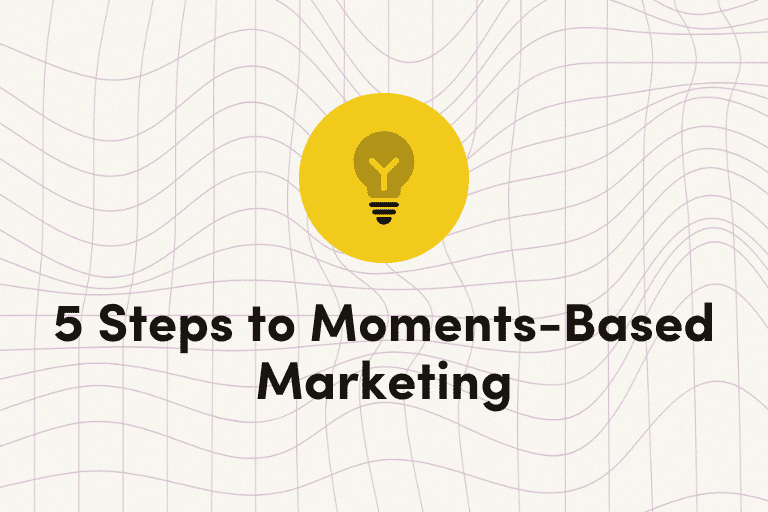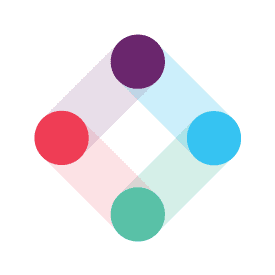Sololearn is an application designed to help users learn how to code. With over 20 available courses and a mobile app for learning on the go, their bite-sized lessons make learning how to code a breeze. A crucial part of learning, especially with short, achievement-based lessons, is a strong customer communication strategy—with a platform to back it up.
This is exactly why Sololearn chose to partner with Iterable. Iterable’s centralized data paired with in-app, SMS, and email marketing capabilities gave Sololearn the ability to connect with each user at every stage of their unique journey.
Sololearn became an Iterable customer in 2020 and, since then, they’ve strived to improve efficiencies. As a result, the Sololearn team realized they needed to expand upon their Iterable integration to activate the rich customer data they had access to. So, they decided to take their relationship with Iterable to the next level.
What Was Sololearn Hoping to Achieve?
When Mirto Grigoropoulou, CRM Lifecycle Specialist at Sololearn, and Sergio Magaña Mesa, Senior Backend Developer at Sololearn, and the team started digging into their data, they began to realize inconsistencies. But, it was hard to say where the inconsistencies were coming from.
They decided to revamp their integration with Iterable, aiming to achieve:
- Accurate real-time data to communicate with the right users at the right times
- Clear control of content and performance of that content
- The ability to monitor and determine errors to help CS with user queries
As an example, let’s dig into the second goal, “clear control of content.” All emails were being sent through Iterable…with the exception of transactional emails. Transactional emails were triggered through a different source. Without consolidating all customer communications, this can quickly lead to a confusing customer experience for the end user. There’s the opportunity to add more value for customers when all data and communications live within the same platform.
Sololearn’s goals were very easy to achieve with Iterable’s existing functionalities, it was just a matter of untangling some wires to make processes more streamlined.
Enhanced Partnership With Iterable
When we asked the Sololearn team why they decided to revamp the integration with Iterable versus looking elsewhere, Mirto told us that her team knew what Iterable was capable of and they wanted to take full advantage. Throughout the partnership, the Sololearn team regularly provided feedback to the Iterable team about features that could be beneficial to their team—and Iterable listened. With new releases every quarter (like this one), the Iterable team consistently adds new platform functionalities to make marketers’ lives easier. Plus, the Sololearn team knew there were existing Iterable capabilities that, based on their initial data setup, they couldn’t access the way they needed to.
Now, Mirto and the team are even using beta features to their fullest potential. Mirto shared, “The Hold Until tile in Iterable Studio has been a game-changer for me. It allows me to trigger campaigns at the right time for the right users.
Previously, I had to group users together and send the campaign with a delay, which often made it less relevant. With the Hold Until tile, I can ensure that the campaign reaches users at precisely the right moment, making it more impactful and personalized. This feature has significantly improved the effectiveness of my campaigns.”
Mirto also cited Iterable’s customer support. The Sololearn team uses Iterable live chat support feature to get answers to questions quickly. Plus, with access to the Iterable support team, they’re reassured that they can get any additional help they may need.
“Iterable’s knowledge base is very clear and most of the time contains all the information needed, therefore, we only needed support through live chat a few times. The team is always very helpful and provides solutions.”
– Mirto Grigoropoulou, CRM Lifecycle Specialist @ Sololearn
We had a good thing going, we just needed to polish it up a bit.
What Were the Results?
The reintegration took a few months with the Iterable and Sololearn teams working together to determine the best approach. Sololearn saw this as an opportunity to clean up old custom events and user attributes that were sent but either not accurate or not used at all. Now they have fewer events—most of which they use daily—with correct data.
They’re also seeing improvements in metrics. According to Mirto, “Our delivery, open and click rates have improved a lot since the reintegration as we now have more accurate data and events triggering at the right time for the right user.” Plus, with holes being filled in from previously missing data, Sololearn was able to increase push and email send volumes.
Another result Mirto shared was faster resolution of errors. With the new system, Sololearn is now able to quickly and easily figure out where the error is when something doesn’t add up in their Iterable data.
Plus, with this newfound confidence in the data stored in Iterable, the Sololearn team has been able to do a lot more experimentation. Their journeys are set up so well they can now focus purely on optimization versus worrying about data configuration. They test AI features, email subject lines, content holdout groups, and more.
We were able to work together with the Sololearn team to help them achieve their goals and improve their efficiencies. Win-win.
Advice From the Sololearn Team
The Sololearn story is unique, but there are likely aspects of their experience that other marketers can relate to. We asked what advice they’d pass on to anyone considering upleveling their Iterable integration. They said:
- Rely on your logs for understanding. Logs provide insight into what and when events are triggered and allow you to understand the flow of data to Iterable. Pay attention to the order in which events are triggered, as it can be crucial for the intended functionality.
- Start with a minimum viable product (MVP). Learn from your previous integration experience and identify the key attributes and custom events that are truly necessary for your campaigns and user engagement strategies. By starting with an MVP, you can streamline the implementation process and avoid unnecessary overhead.
- Avoid unnecessary bulk calls. Reassess the need for bulk calls and consider sending single calls for the relevant campaigns and user attributes. By focusing on the specific campaigns and attributes that are truly valuable, you can optimize the integration process and reduce unnecessary complexity.
We’re grateful to the Sololearn team for working with us through this reintegration process and we’re thrilled that the results speak for themselves.
If you’re interested in more Iterable integration stories, check out the story Dotdash Meredith shared at #Activate23. Or, if you want to learn more about integrating your brand with Iterable, schedule a demo today.
































